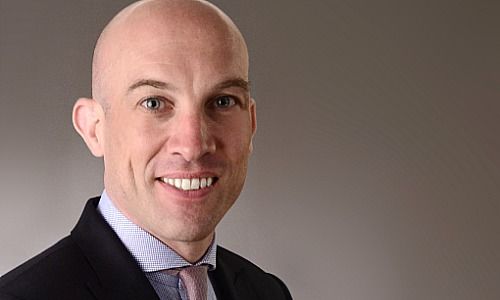Michael Blake: «We Plan to Hire 40 Relationship Managers in Asia»
Union Bancaire Privée wants to double its assets under management in Asia in the next couple of years and and will therefore hire a string of new relationship managers, Michael Blake, UBP's Asia CEO, said to finews.asia.
Mr Blake, is it difficult to attract new clients?
In Asia, the acquisition of new clients continues to be supported by new wealth generation. Wealth is still being created here faster than anywhere else in the world. Fifty percent of assets are not professionally managed and we are in the midst of an inter-generational transfer of wealth. This translates into a significant opportunity for Union Bancaire Privée (UBP).
At the same time, competition remains intense.
Yes, but banks can no longer be all things to all people. You have to be clear about your niche and about the kind of client you wish to do business with. This is leading to greater differentiation within the industry than ten years ago.
How does UBP attract new clients?
We provide asset management for private and institutional clients, we have deep expertise in alternative investments and we are able to make faster decisions as a privately owned private bank.
«Looking at the Coutts acquisition, we retained around 80 percent of clients»
Our expertise in asset management and alternatives positions us particularly well for family offices and Ultra-High-Net-Worth families in the region.
Having completed the acquisition of the international private-banking division of Coutts, are you profitable?
We have generated good momentum and are exactly where we expected to be six months after the acquisition.
What are the cornerstones of an ideal takeover?
Looking at the Coutts acquisition, we retained around 80 percent of clients, which was above expectations given the two year sale process. One of the main reasons for this is that clients responded positively to UBP as a strong pure play private bank that is investing in the region. They also valued the continuity of service and relationship manager that we were able to offer.
«As you know, our CEO Guy de Picciotto likes to move fast»
Besides this, staff retention and ensuring a smooth technical and regulatory migration process are of course critical cornerstones of any successful acquisition.
Acquisitions by local banks are waved through more swiftly than those envisaged by foreign banks. Have you had similar experiences?
That is not how I would characterise it. In fact, quite the opposite – as part of the Coutts acquisition, we were grateful to the Hong Kong Monetary Authority (HKMA) for their timely approval of our Hong Kong banking license. Stakeholders ultimately look for stable and financially strong acquirers who are committed to the regions in which they operate.
How many clients asset do you manage today and what’s your target for the next three to five years?
The private bank has around 10 billions franc in Asia. We would like to see that figure double and, as you know, our CEO Guy de Picciotto likes to move fast.
That’s ambitious...
Yes, but achievable if you take the market potential into account. There are many routes to growth in the current environment. We can do more with our existing customers – the business was in a holding pattern during the Coutts sale process and there has been a natural pick-up in activity as we introduce the UBP proposition.
«UBP’s expanded presence in Asia has generated intrigue, particularly from relationship managers»
We also plan to increase the number of relationship managers from 60 to 100 over the next two years.
UBP isn’t a well-known brand in Asia. How do you attract talented private bankers?
UBP’s expanded presence in Asia has generated a good deal of interest and intrigue, particularly from experienced relationship managers who have strong client relationships and who want a less complex, more entrepreneurial working environment.
Could you elaborate a bit more on this topic?
Experienced relationship managers have two clear choices today. Either they remain with a large institution which provides a broad service offering and will institutionalise their relationships.
Or they can join a boutique which offers a strong niche proposition and where the banker remains at the centre of the client relationship. An increasing number are opting for the latter.
Almost every bank has launched apps or maintains an innovation lab – except UBP. Why do you remain on the sidelines?
We are observing. There are some really good ideas out there. And Singapore’s regulator, the MAS, is playing a hugely positive role in encouraging the industry to develop new fintech opportunities.
«Clients do not bank with us because we have a nice app»
But fintech has not yet disrupted the industry and it is not yet clear which solutions will become mainstream. A bank with our business model can afford to wait until technologies become more mature.
Ultimately, clients do not bank with us because we have a nice app. They bank with us because of the investment advice we provide. How we deliver that investment advice is important but there is not yet overwhelming demand for one particular solution.
So, UBP clients are not willing to engage with computers?
The broader question for the industry is the role technology will play in providing advice to wealthy clients. Of course, technology has a part to play, but I believe the client advisor will remain at the heart of a wealth management relationship. Because when you sit down to talk about managing your money, it is not a binary conversation.
Do you have no concerns that UBP will miss the boat regarding fintech?
Not at all. The great advantage of UBP is our ability to react quickly to changes in the market as well as in the industry. We are well positioned to respond to such changes.
Michael Blake was appointed CEO Private Banking Asia Union Bancaire Privée (UBP) upon completion of the acquisition of Coutts International by UBP in April 2016. In this capacity, he is responsible for the leadership and development of UBP’s private banking business in Asia. He brings to the role a track record of leading cross-cultural teams during periods of transformational change.
Prior to this, he was Chief Executive of Coutts International. He has lived and worked in Asia, Switzerland and London over the past fifteen years and is active in various international affairs forums. He read Philosophy, Politics and Economics at Oxford University and studied Mandarin in Beijing.



























